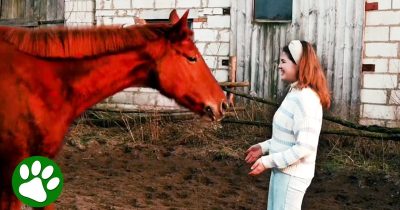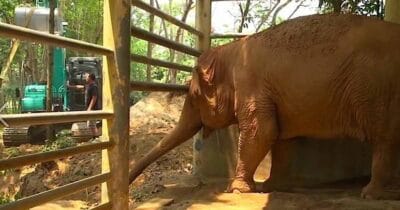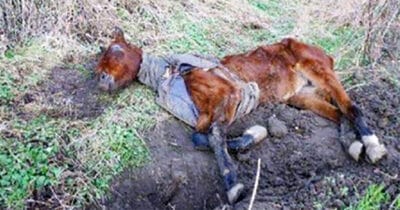
It’s always an exciting day at a zoo when a new animal is born. There’s nothing cuter than a newborn baby animal, bringing lots of joy to zoo staff and visitors.
In fact, the only thing cuter than one baby animal is two baby animals — and the Houston Zoo had double the reason to celebrate recently, after welcoming a very rare pair of baby ocelots!
The cubs, a male and a female, were born on May 29, the zoo announced this week. While only a few weeks old, it seems their personalities are already shining through: they have been named Wasabi and Sriracha, after their “spicy attitudes.”
The baby ocelots are the first born at the zoo in 20 years. While they’re tiny now, these medium-sized wildcats will grow up to be about 30-40 inches long.
They were born to a mom named Genoveve and her male partner Jack, who is described as “the most genetically valuable ocelot in accredited Association of Zoos and Aquariums facilities.”
Those good genes are important, because although the ocelot isn’t an endangered species — they’re considered as “Least Concern” on the IUCN Red List — their population has seen decreases due to habitat destruction. There are now only an estimated 50-80 ocelots in the United States, the Houston Zoo reports.

Each new ocelot birth is another step towards ensuring the survival of this species, so it’s extra great news that Wasabi and Sriracha arrived as a pair. The zoo says it is rare to see ocelot twins.
The cubs are now spending time with their mom behind-the-scenes, but will soon be made available for public viewing. Hopefully these adorable newborns will inspire people to come visit — and help support the zoo’s conservation efforts.
“The biggest threat to the ocelot’s survival is the loss of habitat. Every time you visit the Houston Zoo you are helping protect ocelots in the wild,” the Houston Zoo wrote. “The Zoo provides support for people protecting and replanting forests in Colombia to protect wild ocelot homes.”
Congrats to the Houston Zoo on the births of these precious ocelots! We hope they will bring joy to visitors for years to come and inspire people to help protect this species and their habitats.
Share this amazing news!






